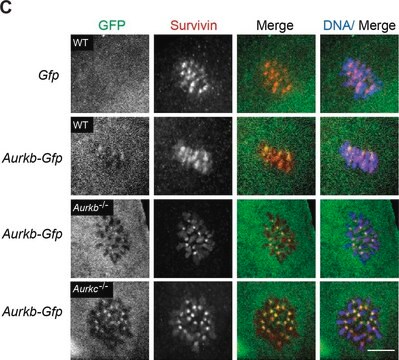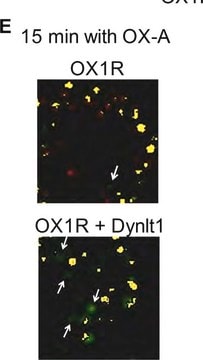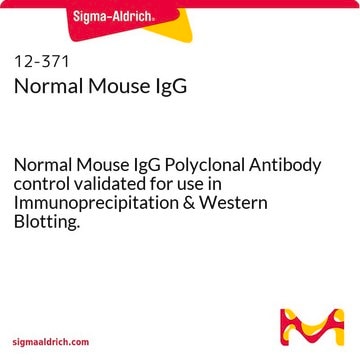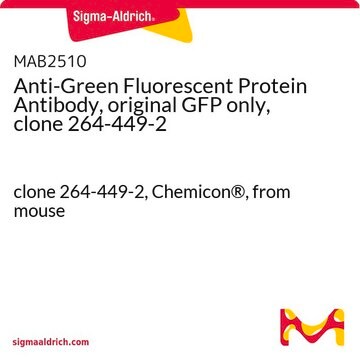SAB4200681
Anti-Green Fluorescent Protein (GFP) antibody, Mouse monoclonal
clone GFP-20, purified from hybridoma cell culture
Synonyme(s) :
Monoclonal Anti-Green Fluorescent Protein (GFP) antibody produced in mouse, green fluorescent protein
About This Item
Produits recommandés
Source biologique
mouse
Niveau de qualité
Forme d'anticorps
purified antibody
Type de produit anticorps
primary antibodies
Clone
GFP-20, monoclonal
Forme
buffered aqueous solution
Poids mol.
antigen 27 kDa
Espèces réactives
rat, human
Concentration
~1 mg/mL
Technique(s)
immunoblotting: 1-2 μg/mL using whole extract of human HEK-293T cells over-expressing GFP tagged fusion protein.
immunoprecipitation (IP): 5-10 μg using whole extract of human HEK-293T cells over-expressing GFP tagged fusion protein.
Isotype
IgG1
Conditions d'expédition
dry ice
Température de stockage
−20°C
Modification post-traductionnelle de la cible
unmodified
Description générale
Spécificité
Immunogène
Application
- immunoblotting
- immunoprecipitation
- dot blot
- enzyme-linked immunosorbent assay (ELISA)
- scanning electron microscope (SEM)
Actions biochimiques/physiologiques
Forme physique
Stockage et stabilité
Clause de non-responsabilité
Vous ne trouvez pas le bon produit ?
Essayez notre Outil de sélection de produits.
En option
Code de la classe de stockage
10 - Combustible liquids
Point d'éclair (°F)
Not applicable
Point d'éclair (°C)
Not applicable
Faites votre choix parmi les versions les plus récentes :
Certificats d'analyse (COA)
Vous ne trouvez pas la bonne version ?
Si vous avez besoin d'une version particulière, vous pouvez rechercher un certificat spécifique par le numéro de lot.
Déjà en possession de ce produit ?
Retrouvez la documentation relative aux produits que vous avez récemment achetés dans la Bibliothèque de documents.
Les clients ont également consulté
Notre équipe de scientifiques dispose d'une expérience dans tous les secteurs de la recherche, notamment en sciences de la vie, science des matériaux, synthèse chimique, chromatographie, analyse et dans de nombreux autres domaines..
Contacter notre Service technique












